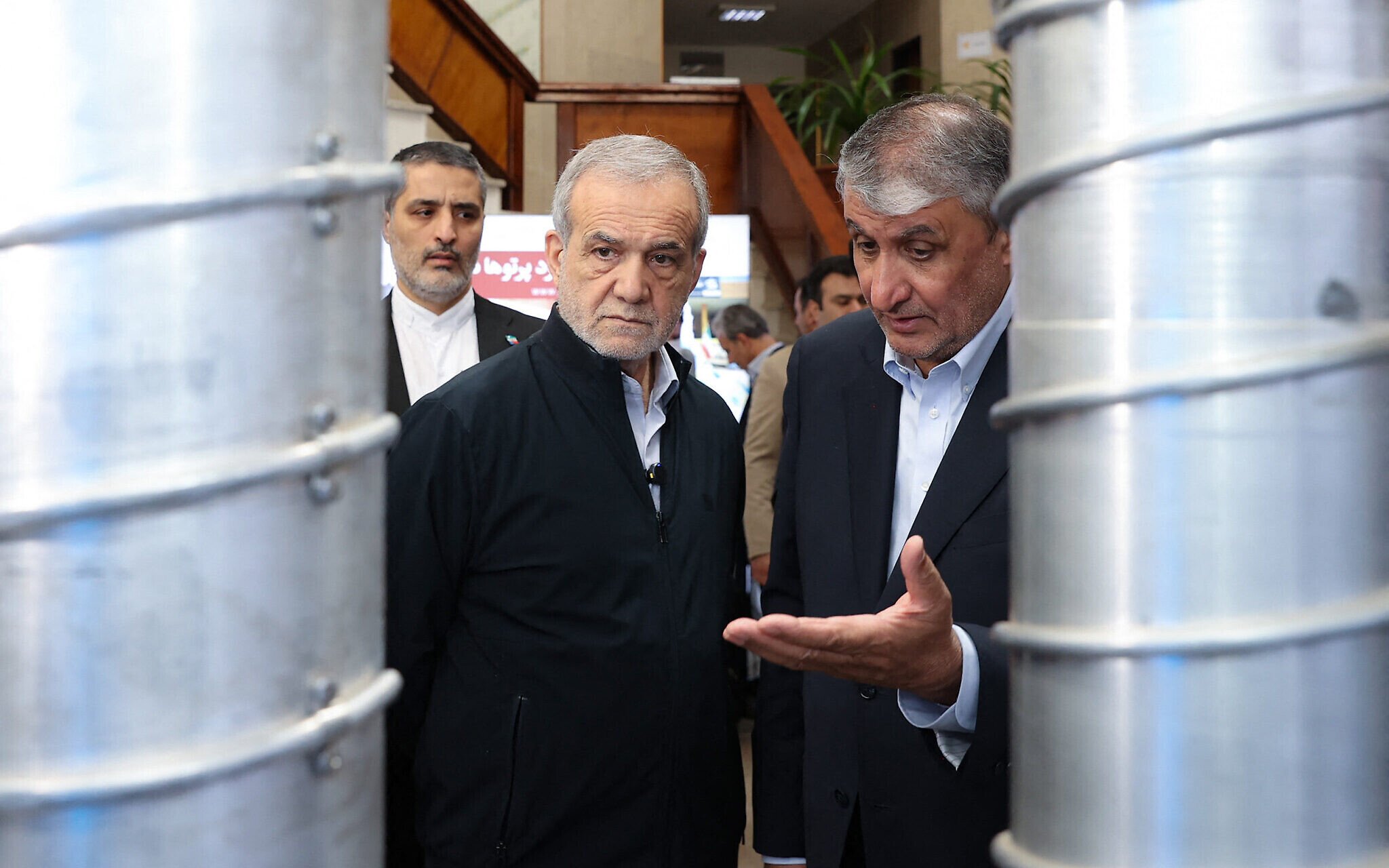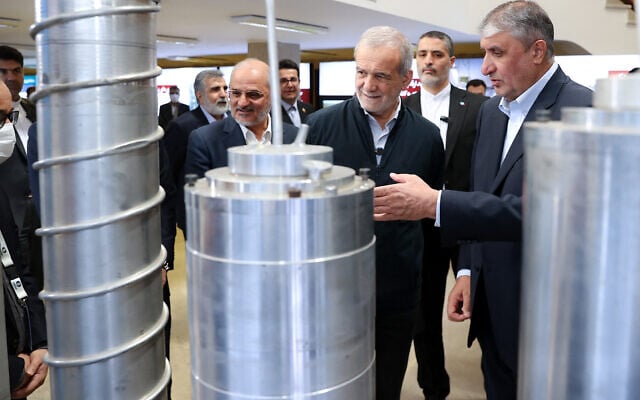



The Times of Israel is liveblogging Friday’s events as they happen.
Report: Iran considering proposing interim nuclear deal in talks with US

Iran is weighing proposing an interim nuclear agreement to the US ahead of planned talks between the two countries in Oman this Saturday, the Axios news site reports.
Tehran is concerned that US President Donald Trump’s reported two-month deadline for reaching a deal is too limited, and is seeking more time to avoid a military escalation by the US or Israel, says Axios, citing a European diplomat and a source familiar with the matter.
An interim agreement could reportedly involve Iran partly reducing its uranium enrichment activity and allowing the UN increased access to its nuclear facilities, as a confidence-building step to a more comprehensive agreement. The report says that in response, Iran would likely demand that Trump ease his “maximum pressure” sanctions campaign against Tehran.
With Prime Minister Benjamin Netanyahu at his side, Trump declared on Monday that his administration was holding direct talks with Iran on its nuclear program, though the assertion was quickly denied by Tehran, which did, however, acknowledge indirect talks.
“If the talks aren’t successful,” Trump warned, “it’ll be a very bad day for Iran.”
US Treasury targets Chinese oil storage terminal as part of new Iran sanctions
WASHINGTON — The Trump administration has imposed sanctions on Iranian oil trading networks, including on a China-based crude oil storage terminal linked via a pipeline to an independent refinery, just days before direct talks between the US and Iran.
The US imposes sanctions on Guangsha Zhoushan Energy Group Co, LTD that it says operates a crude oil and petroleum products terminal on Huangzeshan Island in Zhoushan, China. The terminal knowingly engages with oil from Iran, and is directly connected through the Huangzeshan–Yushan Under Sea Oil Pipeline to an independent refinery known as a “teapot” plant, the US State Department says.
“The United States remains focused on disrupting all elements of Iran’s oil exports, particularly those who seek to profit from this trade,” US Treasury Secretary Scott Bessent says.
The terminal has acquired Iranian crude oil at least nine times between 2021 and 2025, including from US sanctioned vessels, and has imported at least 13 million barrels of Iranian crude oil, it says.
China, the largest importer of Iranian oil, does not recognize US sanctions. China and Iran have built a trading system that uses mostly Chinese yuan and a network of middlemen, avoiding the dollar and exposure to US regulators.
The Chinese embassy in Washington does not immediately respond to a request for comment. But in response to a sanction on a teapot refinery last month, a spokesperson said: “China has always been firmly opposed to illegal and unjustifiable unilateral sanctions and so-called long-arm jurisdiction by the US.”
Second US aircraft carrier arrives in Middle East
WASHINGTON — A second American aircraft carrier has reached the Middle East, where Washington’s forces are carrying out near-daily air strikes against Yemen’s Houthi rebels, the US military says.
The USS Carl Vinson — which is armed with F-35C stealth warplanes — is now working alongside the USS Harry S. Truman in the region, US Central Command says in a post on X that featured side-by-side video clips of aircraft taking off from the two ships.
The Pentagon announced last week that it was increasing the number of American carriers in the Middle East to two, after launching the latest round of its air campaign against the Iran-backed Houthis in March in a bid to end the threat they pose to civilian shipping and military vessels in the region.
Aircraft Carrier USS Carl Vinson (CVN 70) with its air wing consisting of F-35C Lightning IIs works alongside the USS Harry S. Truman (CVN 75) in the U.S. Central Command area of responsibility. pic.twitter.com/c2p4yxmBpj
— U.S. Central Command (@CENTCOM) April 10, 2025
